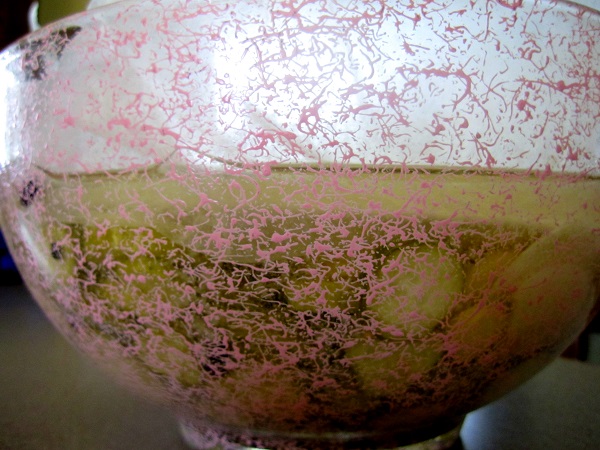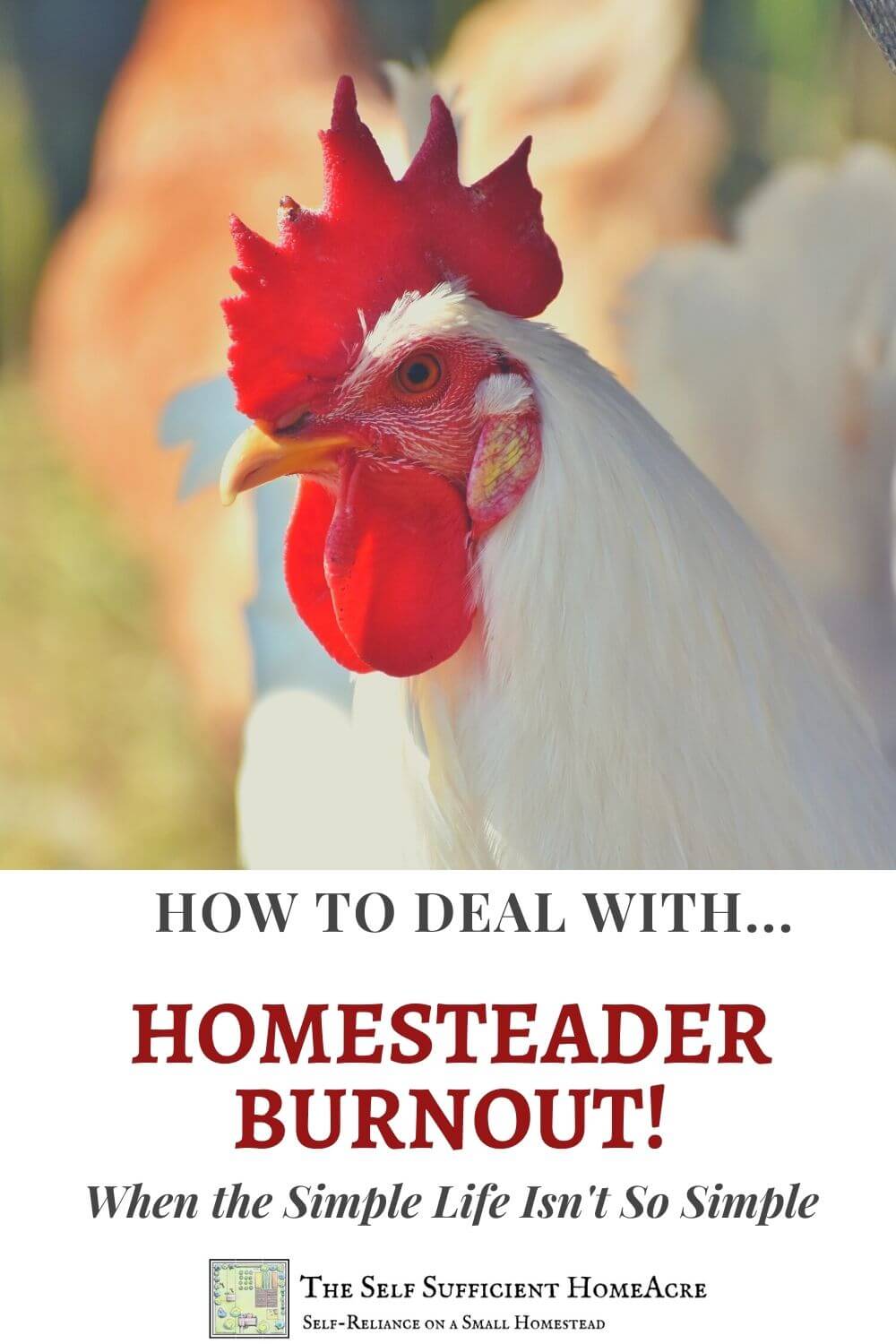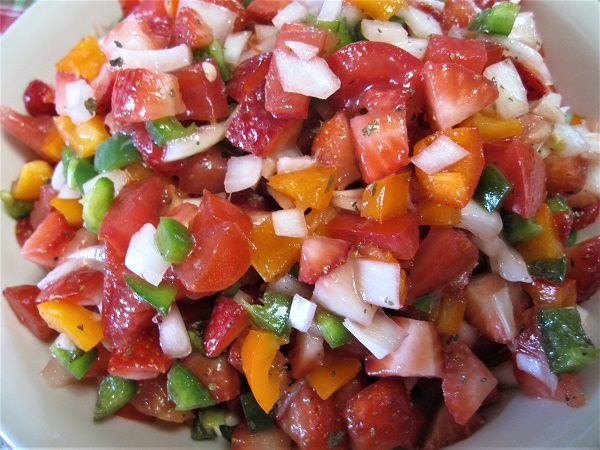Making Brine Cured Pickles
Curing foods in brine is an old-fashioned way of preserving them without refrigeration. A salt solution is used to cover the food and keep it from spoiling. Brine cured pickles were a staple in many homes.
I remember my Grandma M making large crocks full of pickles in the summer with this very process. She would wash the cucumbers and put them in a crock, then cover them with a solution of salt, water, and vinegar, with some spices for flavor.
The crock would go in the cool basement with a plate on top to keep the pickles under the brine. After a few days, she would ladle out some pickles into a serving bowl and we’d dig in. Yum!

Nowadays, I like to make my own brine cured pickles from my extra cucumbers. I have a wonderful crock that my parents gave me, but I don’t always have enough cucumbers for a full crock. Instead, I’ve been using glass bowls to make smaller batches of pickles. I’ve tinkered with the old recipes and come up with two variations of brine cured pickles that my family really likes.
Brine Cured Dill Pickles
- 2 cups water
- 1/4 cup sea salt
- 2 cups distilled white vinegar
- 1 Tbs peppercorns
- 2 or 3 dill flowers or a handful of dill leaves
- 8 or so cucumbers (or other veggies), washed and sliced
Heat water in a small pan and add salt. Stir to dissolve salt then remove from heat. Pour salt water and vinegar into a glass bowl or small crock and stir to combine. Add cucumbers, dill, and peppercorns. Make sure the brine solution is deep enough to cover all of the vegetables. You may cover the bowl with plastic wrap or waxed paper. Place a plate on top that is small enough to set right on top of the wrap and solution. You will need to put some weight on top of the plate to hold all of the vegetables under the solution. Vegetables that are in contact with the air may spoil.
After a day or two you can start dipping into your new pickle stash! Don’t use your fingers, use a slotted spoon to remove pickles and prevent contamination of your brine solution.
Brine Cured Mustard Pickles
- 2 1/2 cups water
- 1/3 cup sea salt
- 2 1/2 cups distilled white vinegar
- 1 Tbs powdered mustard seed
- 1 or 2 Tbs whole mustard seed
- 1 Tbs peppercorns
- 10 or so cucumbers (I also used sliced summer squash)
Heat water in a small pan and add salt. Stir to dissolve salt then remove from heat. Pour salt water and vinegar into a glass bowl or small crock and stir to combine. Add cucumbers, mustard seeds and powder, and peppercorns. Make sure the brine solution is deep enough to cover all of the vegetables. Cover the bowl with plastic wrap or waxed paper. Place a plate on top that is small enough to set right on top of the wrap and solution. You will need to put some weight on top of the plate to hold all of the vegetables under the solution. Vegetables that are in contact with the air may spoil. After a day or two you can start dipping into your new pickle stash! Don’t use your fingers, use a slotted spoon to remove pickles and prevent contamination of your brine solution.
Notes for Curing Vegetables in Brine
- You can pickle many vegetables this way. Onions, green beans, summer squash, carrots, cauliflower, celery, and peppers all come out delicious and crunchy.
- Make sure to use a non-reactive container for your brine and pickles.
- Keep your brine and pickles in a cool, dark spot for best results.
- I’ve kept my brine cured pickles on the counter for several weeks, dipping out pickles as we want them, and adding fresh veggies to the brine to keep the pickle supply topped off. This is the way people used to do things, but if you are concerned about the safety of your brine cured veggies, put them in the refrigerator after a week and use them up in 2 or 3 weeks.
- If you ever notice any off odors or slimy texture to your veggies, toss them in the compost and start a fresh batch with a new brine solution. If you make sure that your veggies are always under the brine solution, this shouldn’t be a problem.
- Try making your pickles in a one-quart fermenting jar (#ad) for small batches.
This post contains affiliate and referral links and advertising as a means to earn income. You won’t pay any extra but I may earn a small commission on qualifying purchases. As an Amazon affiliate, I may earn a commission on qualifying purchases. See my disclosures.
Growing Your Own Pickling Cucumbers
It’s great to get cucumbers on sale or from a farm stand but you can also grow your own in a garden, raised bed, or large container. Plant the vines in full sun, water them when the soil is dry about 1-inch below the surface, and don’t wet your plants (ha ha) when you water. This reduces disease on the leaves. Harvest your pickling cukes at 2- to 3-inches for gherkins, or allow them to grow a bit larger for chips or spears. Pick the fruits before they begin to turn yellow and tough.
This post contains affiliate and referral links and advertising as a means to earn income. You won’t pay any extra but I may earn a small commission on qualifying purchases. As an Amazon affiliate, I may earn a commission on qualifying purchases. See my disclosures.
Some of the best varieties of heirloom cucumbers for pickling can be purchased from Mary’s Heirloom Seeds. I like Boston Pickling, Muncher, and Rhinish Pickling Cucumber the best. I also want to try Richmond Green Apple Pickling Cucumber… they look tasty and grow on compact vines.
You can also grow your own dill for pickling (and provide some nectar for the bees!). Mary’s Heirlooms offers Bouquet (ornamental), Mammoth (large, productive), and Dukat (lots of greens). Dill doesn’t like to be transplanted, so direct sow it in the garden and water when the soil is dry down to about 1″ of the surface. Use the leafy greens, flowers, or seeds to flavor pickles and other foods.
Leave a comment if you have questions about making brine cured pickles!










my granddaddy made salt brine pickles that were hot but oh so good we would get a jar and a milk jug full of cold water and sit on the porch in the summer and eat the whole jar, no one in the family knew how he made them but I remembered the salty taste and started looking for recipes that might have the secret and i came across your recipes, i think he used peppers though, he made the brine in a big glass jar and they canned some too , is the mustard the key to the hot ones?
Hi Michelle,
I don’t think the mustard makes these pickles very hot but I have also made them with hot peppers added in with the cucumbers. They were very good. I just added a handful of jalapeno or serrano peppers (to a half-gallon jar of pickles) with the stem end cut off and the pepper sliced in half lengthwise. I also made brine pickles with a sprinkle of crushed red peppers into the brine solution when I heated it to dissolve the salt and that was good, too. I don’t remember how much I used but you could try a small amount and add more if you like.
Best wishes and thanks for sharing your memories of your Grandpa’s pickles!
I noticed your answer to someone’s question of canning the pickles for long storage. You stated yes they can be BUT would be squishy/soft.
I grew up on my dad’s (now 93 years old) crock dill pickles. He always used Alum OR Grape leaves in his recipe. This aids to the crispy crunchiness. Even after the canning process they stay crisp.
Hi Deby,
Thanks for the suggestions. I have been using pickling lime to can pickles and that works well also.
I’ve heard of pickling lime. Wondered how will it did and how to use it.
I recently got the privilege to have my dad’s pickling crocks, one is a 10 gallon size, the other is 1 gallon. This is my first year at trying my hand of keeping his tradition going.
Can you use apple cider vinegar for this receipe> Thanks
Hi Carol,
Yes, you can use any vinegar as long as the acid level is 5% or better. The flavor will be a bit different but I like it. 🙂
How about whole small cuc’s. I can remember my grannies making them and they were heaven on earth
Hi Becky,
Yes, you can use the small, whole cucumbers in this recipe. They take a little bit longer to pickle, but will work just fine. Thanks for asking!
Hi Margaret,
the pickles you describe sound delicious! I’ve never seen a recipe for them and I did a search to see if I could find them…but I didn’t see anything like them. I wonder if they are still considered safe for sitting out without refrigeration by the food experts. If not, the recipe may be difficult to find. Sorry I couldn’t help. Thanks for stopping by!
About 50 yrs. ago I had a recipe for day by day mustard pickles in a crock. After we moved to the city i didn’t have it anymore. The various veggie pieces were brined overnight to remove excess water, then popped into the crock. It contained a mixture Which had been boiled previously, containing water, vinegar, brown sugar, and several spices including mustard seeds. I don’t think it had additional salt, but I’m not sure.
All kinds of veggies were used, cut up into chunks, whatever happened to be available that day.That crock sat on my counter, and was dipped into every day for the rest of the year until we moved into the city the following summer.
Those pickles became very strong and hot!
When preparing meat to cook, I often marinate it first in various things – tenderizes it and adds flavour. A few of these pickles were usually included in the marinade, and then cooked with the meat. Indescribably good flavour.
I have been unable to find a copy of that recipe since.
Would anyone have any idea how to adapt your recipe to get the results I so loved?
Perhaps needless to say, I included garlic and red chillies, which accounted for some of the “heat.”
New to pickling and canning and this was a great recipe. I was wondering if I can can these pickles after 2-3 weeks sitting in the brine, thanks Tony
Thanks, Tony 🙂 Glad you like them! You may can them, but they will get squishy. You can also put them in a jar of the brine solution and keep them in the fridge for 6 months easily (I’ve had some for over a year that kept just fine in the fridge).
have had my brine pickles in the crock for 3 weeks and am ready to canthem. The brine is cloudy – is this normal?
Hi Melissa,
Yes, the cloudiness is due to the growth of good bacteria. You may can them for long term storage, or you can transfer them to a jar in the refrigerator and just use them up as you like. Canning them does kill the good bacteria, but is certainly a viable storage method if you can’t use them all up within a year (I’ve kept them for a year with no problems). Just be aware that they will lose their crunchiness when canned.
Best wishes!
This will be my second try at brine pickles. I have great dill pickle recipe a sweet teacher gave me, the best I have ever tried in my life! Now I am going to try you’re brine mustard recipe. Thanks for the site. 🙂
Happy to share, Debi! Hope you like them!
Thank you for this … my hubz and I have been talking about pickles. I grew up with canned pickles … haven’t ever tried the brine method but have been told they are fabulous! Thanks, again!
I hope you like them, Dawn!
Pickles are in the brine! I ‘tweeked’ a bit… added some sliced onion, garlic and a few chile piquin….. Wish I could have found some summer squash – such a great idea – but, sadly – so rare here anymore. Soon I will be in pickle heaven!
Hi Patricia,
Hope you enjoy them as much as we do 🙂 The summer squash are really good, but they taste pretty close to the cukes…so no worries!
I made the Brine Cured Dill Pickles and LOVE the taste! I think they are the pickle taste I have been looking for 🙂 I used a mix of yellow squash and zucchini to make mine and they are really good!
So glad you liked them, Susan! It’s so easy to throw this together in a bowl and leave them to cure, too 🙂 I love how it turns out with squash too!
I haven’t tried this before, but it is something on my mind! I ordered a lot of green beans from the co-op so that I could make dilly beans for my kids. I would love for you to share this at the what i am eating link up https://www.townsend-house.com/2013/08/what-i-am-eating-39.html
Thanks for the invite, Heather! I thought the same thing about the dilly beans, but I don’t have enough beans coming in right now to pickle them 🙁 thanks for stopping by!